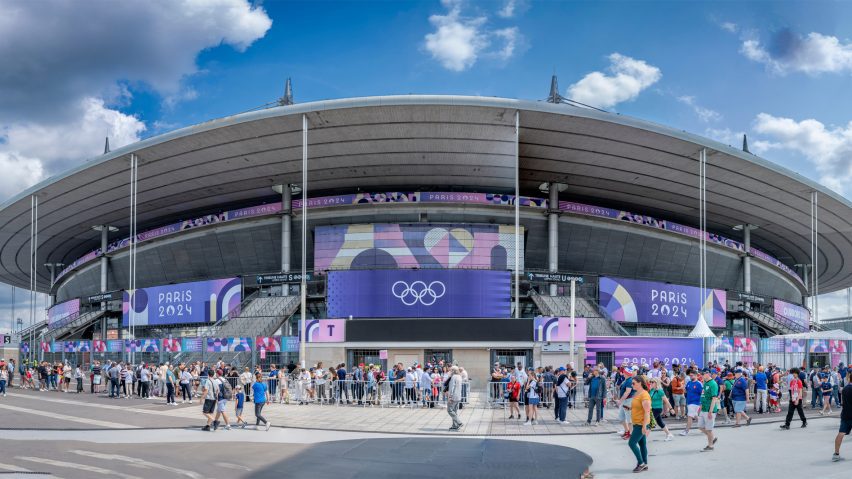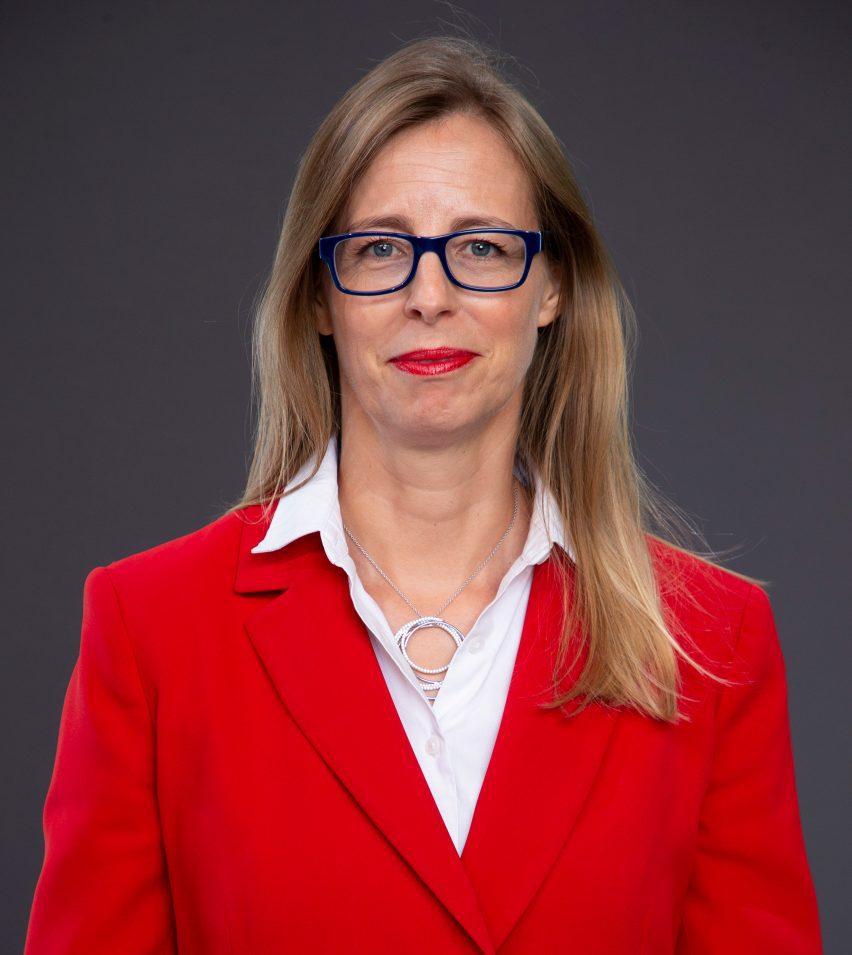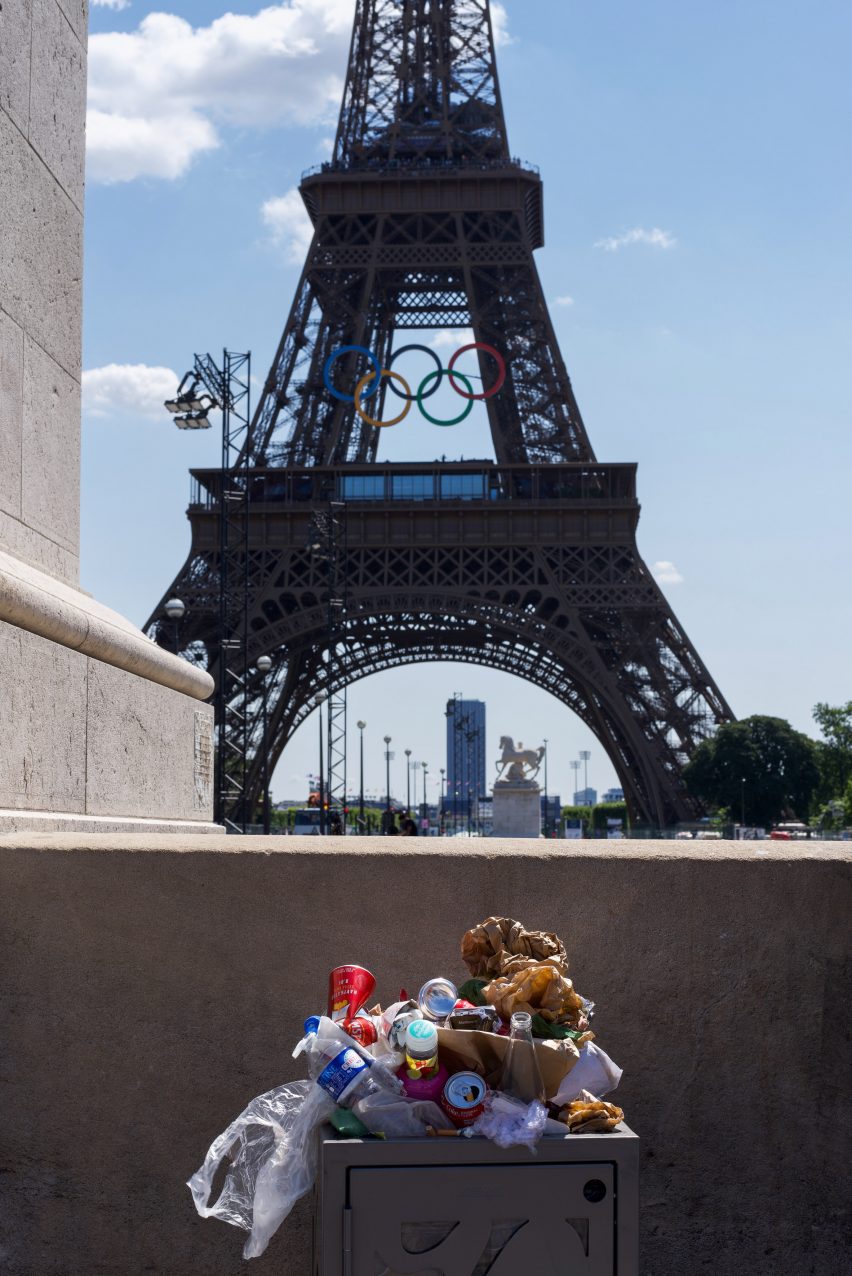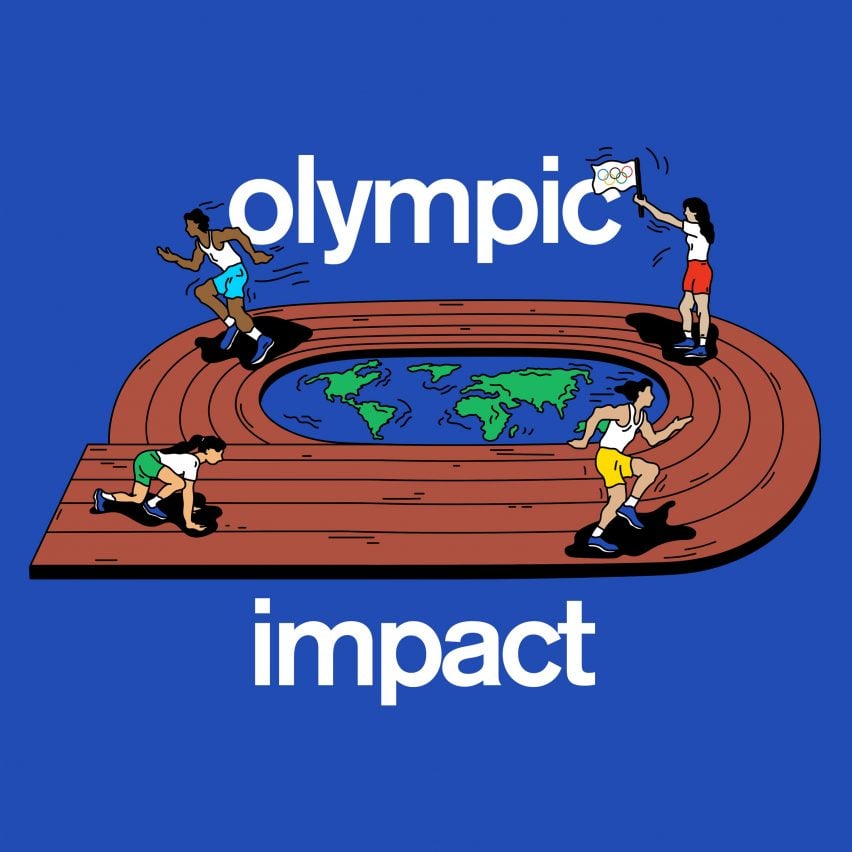
Multi-host Olympics would "completely undermine" the games says IOC sustainability director
LA28 will have an even more ambitious carbon strategy than Paris 2024, Olympic sustainability chief Marie Sallois tells Dezeen in this Olympic Impact interview.
Sallois, who is the corporate and sustainable development director for the International Olympic Committee (IOC), described the Paris Olympics as a landmark achievement in the journey to net-zero.
"We are demonstrating with Paris that we can be sustainable – we are on our way," Sallois said.
"I do not know a lot of events or industries that have been able to cut their footprint in half in 12 years."
Paris 2024 is the first ever Olympic Games organised to a carbon budget. It has a target to emit no more than 1.58 million tonnes of carbon dioxide – around half the carbon cost of London 2012 or Rio 2016.
A report published shortly before the games got underway stated that this ambition is on track to be met.
"Paris 2024 has done the utmost"
"We strongly believe that Paris 2024 has done the utmost at this given point in time, in the context of France," Sallois told Dezeen.
"We have gone really far in terms of implementation on the carbon and the material footprints. The innovation will leave a legacy in France and probably beyond."
While reluctant to draw direct comparisons between Paris and Los Angeles, which will host the next summer Olympics in 2028, Sallois indicated that further progress can be expected.
"Every edition will aim higher in a certain context with new solutions from the market, so yes, we expect Los Angeles to come with other innovative solutions," she said.
The most significant sustainability move for Paris 2024 has been a shift away from building new stadiums, with a focus instead on temporary structures and existing venues.
LA is following suit, with no new permanent venues set to be built for the 2028 games.

Sallois pointed to the use of the UCLA campus as an Olympic Village as an example of LA28 going even further than Paris on "radical reuse".
And she hinted that artificial intelligence may also play a role in limiting emissions further.
"There will be some solutions that are not developed enough for Paris but that will be probably used more for LA, like artificial intelligence," she said. "I cannot even tell you how because it's in the beginning, but I'm sure we will use it more."
The IOC has an ambition for the Olympic Games to be a net-zero event by 2050, Sallois said.
While she believes the goal is "feasible", Sallois admitted that it is based on factors outside of the committee's control.
"We know to get there we have some remaining challenges, and we can only address these challenges within a wider ecosystem, including industries that need to transform themselves like air transportation," she said.
IOC not considering multi-host model
Air travel is by far the biggest sustainability challenge for the Olympics, with Paris 2024 anticipating around 1.5 million overseas spectators.
Sustainability campaigners have called for the IOC to adopt a multi-city model for future games, with events spread across different locations, in order to reduce the numbers of people tempted to fly long distances to attend.
Sallois said that the IOC has partially adopted this approach already, giving hosts more flexibility over where sporting events are held in order to reduce the need to build new venues.
At Paris 2024, for example, some events are taking place in Lille, Marseille and Chateauroux, while the South Pacific island of Tahiti – located 15,000 kilometres away from the French capital – will host surfing events.
"We do not ask the host to adapt to the games, but we really adapt to the local context," she explained.
"So we have reversed, if you wish, the approach – and it means that if the host does not have necessarily all the venues, they can partner with another city, another region," she added.
"So the host can be a city, can be a region, can be several regions, can be different countries."
However, Sallois indicated that the IOC is not currently considering a major departure from the existing setup, where athletes from multiple sports convene in a single city.
She argued that bringing people together from around the world continues to be a crucial function of the Olympics.
"Spreading events across the world seems like a good idea, but it completely undermines this idea of bringing people together through the inspirational power of sport," she said.
"I do not know any other event that brings the world together through sport in peace and celebrates this unity in diversity, and this is a very important message of hope, especially at a time where tensions and conflicts are on the rise."
"Don't think that we have not thought about all this"
She also questioned whether spreading events around the globe would ultimately help to reduce emissions from travel.
"For us, the uniqueness of the Olympic Games is also that people can come and watch different sports," said Sallois.
"If they have to go to different locations, that's not more sustainable. So what seems very simple at first is actually much more complex."
"Don't think that we have not thought about all this," she added. "And this is why what is really important for us is to have this flexibility built in, but keep the uniqueness and make sure we really remain within a footprint that is shrinking as much as we can."

As well as flying, another area in which Sallois believes more progress is needed is reducing plastic waste.
Paris 2024 has pledged to reduce the use of single-use plastics by 50 per cent compared with London 2012, but large numbers of plastic bottles are still expected to be thrown away by spectators.
"I hope we can do more in the future, but again we need to rely on the industry at large, because we rely on a lot of providers," Sallois said.
Nevertheless, she argues that the Olympics provide the perfect vehicle for developing new ways of limiting carbon emissions from human activity.
"We feel strongly that the games will continue to be a laboratory for innovation in sustainability," she said.
That includes architecture, which she suggested will continue to play a major role in the games despite the move away from new construction.
"I think there is a big field here to explore – how renovation can aim at more sustainability and at the same time keep this iconic or symbolic dimension, or even enhance it," she said.
Overall, Sallois is optimistic that the Olympic Games will be able to continue long into the future despite the demands of responding to climate change.
"I am really confident," she said. "It's not that it's going to be easy, you know, we are not undermining the difficulty."
"But because we are working for the Olympic movement we are also very ambitious, and we feel, because of the power of the brand, that we can demonstrate it's feasible."
"So not only do we want to continue to unite the world, but we want also to demonstrate how we can do that in a more sustainable manner."

Olympic Impact
This article is part of Dezeen's Olympic Impact series examining the sustainability measures taken by the Paris 2024 Olympic and Paralympic Games and exploring whether major sporting events compatible with the climate challenge are possible.